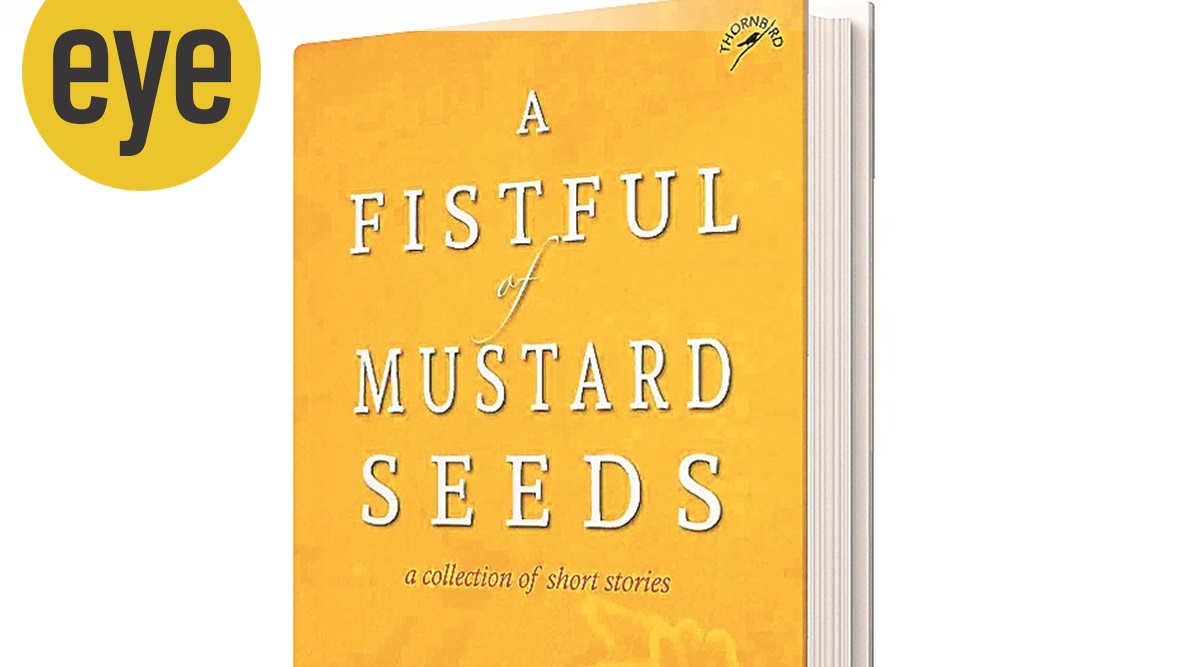New Delhi | Updated: August 16, 2020 9:26:47 am
 A Fistful of Mustard Seeds: A Collection of Short Stories By E Santhosh Kumar
A Fistful of Mustard Seeds: A Collection of Short Stories By E Santhosh Kumar
Recently, I had the opportunity to translate a story by E Santhosh Kumar, ‘Grains as Big as Eggs’ (not in this collection). Its bare-eyed stare at the horrible things happening in a small village — a metaphor for the dark times we are living in — would knock the wind out of the sensitive reader. Therefore, when I received the present collection for review, I was more than excited.
A Fistful of Mustard Seeds has 12 stories, written over a period of two decades. In his introduction, Kumar observes that new writers bring new worlds with them and that the 12 stories are 12 different worlds. He explains why the Malayalam short story is invariably politically charged and points out that as the world changed in the late ’80s and early ’90s, the Left parties of Kerala were unable to interpret it to the public, and the job was left to fiction writers.
The first story, ‘Hills, Stars’, points to the mystery of the human condition, in which destinies are intertwined with chance happenings. Fate plays its hand in the most unexpected manner, unfolding through deliberate human actions — a little boy’s mischief, its unforeseen fatal consequences as an old lady is delayed on the way to the hospital, and his repentance. An old man’s neglect of his dying wife owing to her morbid tantrums and the compunction he feels; the healing compassion of the boy’s father — all these elements come together, creating a strange catharsis. These happen under the watchful eyes of three stars in the sky, looking down on the three houses in the neighbourhood where the boy’s family lived.
‘Light Years’ is about a blind woman, Kamala, who goes on a clandestine lovers’ trip along with a male friend. James is at loggerheads with his wife Elizabeth, while Kamala seems to have parted from her husband, Nandan, for whom, however, she seems to pine every moment she and James are together, even when they are in bed. She later tells James that Nandan had parted from her only in death. James is mean and light-years away from her luminous soul; he snaps nude pictures of the hapless blind woman, possibly with the intention of blackmailing her. She uncannily senses it and deftly foils his attempt. Evil has its many shades, and man’s turpitude has no bounds.
Our times are so evil that Gandhi’s autobiography, My Experiments with Truth, is not apt for the guidance of the younger generations, and something, perhaps titled The Gospel According to the Devil, should be written. This advice is given by a sadhu in the eponymous story to a young fellow passenger on a train. When they met, the sadhu had remarked that the youngster should have made a hoax call to the police claiming that there was a bomb on the train. That would have stopped it, and he wouldn’t have had to frantically board it at the last minute. Towards the end of the story, we find that the sadhu’s parents had been shot dead by the police while they were quelling a riot!
Unlike most of the other stories in the collection, the title story, ‘A Fistful of Mustard Seeds’, is about a woman’s terrible mental trauma and its final resolution. The only child of an almost-single mother goes missing, as they are travelling on a train with her colleague and dubious paramour, Richie. She had fallen for the consolation of Richie’s embrace as her husband was on the verge of breaking away from her. When they find out that the child is missing, Richie gets down at the next station and goes in search of him. The mother’s friend, Mrs Mehta, sends her to a guruji’s ashram to divine where the child is. But the guruji blurts out to her the harrowing story in which the Buddha asks the grieving mother of a dead infant who had approached him to have her child resurrected, “There is only one way to solve your problem. Go and find me four or five mustard seeds from any family in which there has never been a death.” However, the mother in our story finally hears the voice of her boy over the phone.
The other stories in the collection are titled ‘Three Blind Men Describe An Elephant’, ‘My Father was a Thief’, ‘Death Game’, ‘The Perch’, ‘The Crying Buddha’, ‘Three Fingers’, ‘Another Summer’, and ‘Helmet, not for Sale’. E Santhosh Kumar’s fictional world is peopled with characters that evoke terror, pity and amazement — broad palette-knife strokes that violently manipulate colours into striking images of our apocalyptic times.
AJ Thomas is a poet, fiction writer, translator and editor
📣 The Indian Express is now on Telegram. Click here to join our channel (@indianexpress) and stay updated with the latest headlines
For all the latest Books And Literature News, download Indian Express App.
© The Indian Express (P) Ltd
"story" - Google News
August 16, 2020 at 10:26AM
https://ift.tt/312lTWm
‘A Fistful of Mustard Seeds’ shows why the Malayalam short story is invariably politically charged - The Indian Express
"story" - Google News
https://ift.tt/2YrOfIK
https://ift.tt/2xwebYA
Bagikan Berita Ini














0 Response to "‘A Fistful of Mustard Seeds’ shows why the Malayalam short story is invariably politically charged - The Indian Express"
Post a Comment